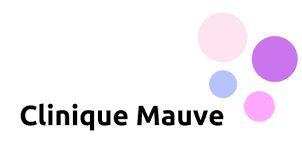

Intersectional andGlobal Approachesto HealthCare
Aconversationwith LGBTQIA+MigrantsintheMontrealarea
November2023







AbouttheCommunity Roundtable
OurCareisapan-Canadian conversationwithmembersofthe publicaboutthefutureofprimary care.TheprojectisledbyDr.Tara Kiran,afamilyphysicianand researchscientistbasedatSt. Michael’sHospital,UnityHealth Toronto,andtheUniversityof Toronto.Therearethreephasesto theproject:anationalsurvey, provincialprioritiespanels,and communityroundtables(seeAbout OurCareonpage16fordetails).
OurCarepartneredwithClinique Mauve,asociallabbasedat UniversitédeMontréal,which providesintegratedhealthservicesto migrantandracializedLGBTQIA+ peoplelivinginMontreal.Clinique Mauvewasestablishedin2020and finisheditspilotphasein2021.The roundtableprovidedarare opportunityforCliniqueMauveand itsassociatepartnerstoengagewith peopleintheirnetworks.As expressedbyparticipantsduringthe roundtable,moreopportunitiesto sharetheirperspectivesandtohelp buildadvocacycapacityare welcomedbythoseconnectedtothe clinic.

TheCliniqueMauveCommunity RoundtablewasheldonThursday, November16,2023.Theroundtable, hostedinthenewlyopenedClinique MauvespaceatUniversitéde Montréal,broughtparticipants togetherforsixhourstolearnabout theprimarycaresystem,sharetheir perspectives,andgenerateideasfor changetoaddresstheirconcerns. Theywerejoinedbyapanelof expertsinthemorningandaguest presenterintheafternoon.
Thepaneldiscussioninthemorning providedparticipantswithan overviewoftheprimarycaresystem inQuebec.AhmedHamilla,Assistant ProfessorofSociologyatUniversité deMontréal,moderatedadiscussion withDr.NebKovacinaafamilydoctor atSt.Mary’sHospitalandDirectorof QualityImprovementatMcGill University’sDepartmentofFamily Medicine.Theywerejoinedbytwo representativesfromCliniqueMauve: RenataMilitzer,ClinicalServices Coordinator,andMarianneChbat, PrincipleResearchCoordinator. Participantswerealsojoinedby ChristineDemers,SeniorProject ManagerattheInstitutduNouveau



Mondeintheafternoon,who providedadetailedoverviewofthe OurCareQuebecProvincialPriorities Panel.Eachpresentationwas followedbyaquestionandanswer period.
Participantsspentthebulkoftheday togetherinsmallgroups,sharing whathasandhasnotbeenworking fortheirhealth,anddiscussing possibleremediestotheirconcerns. Thisreportreflectsthethemesand recommendationsidentifiedbythe roundtableparticipants.




WhoWeEngaged andWhy

LGBTQIA+migrantsinCanadaoften facenumerouscomplexchallenges thatimpacttheirday-to-daylives. Structuralbarrierslinkedtoresidency status,racism,aswellastransphobia andhomophobiaarejustsomeof therealitiestheyexperiencedueto theirintersectingidentities.The roundtablewasorganizedtoelevate theuniqueperspectivesofmigrant andracializedLGBTQIA+individuals andheartheirideasforchangeinthe primarycaresystem.
Thankstotherecruitmenteffortsof CliniqueMauveanditspartner organizations,theroundtable participantswereadiversegroupof communitymembers.The11 participantsrepresentedabroad spectrumofresidencystatuses, genderidentities,andsexual orientations.Theroundtablewas conductedinEnglishandFrench,with themajorityofparticipants comfortablespeakingineither language.Thesmallgroup facilitatorswereabletosupport participantswhochosetoengagein SpanishorArabicifneeded.To
ensuretheroundtablewas accessible,participantswereoffered stipendsandneeds-basedsupport.
LGBTQIA+migrantsandracialized individualsarepeoplewhooftenface compoundingsystemicbarriers relatedtohistoricalexclusionand discrimination.Migrantsofvarious statuses,manyofwhomhavecome toCanadatoseekabetterlifeor escapepersecution,havetonavigate extensivebureaucraticprocesses beforetheycanenjoythesame benefitsasresidents,includingthe abilitytoworkandaccessprovincial healthcare.Duringthistime,access toservicesvariesgreatlybasedon residencystatus,withrefugee claimantsexperiencingvastly differentwaittimesandsupportthan othermigrants.InQuebec,only56 percentofrefugeeswereableto accessafamilydoctor.1Whenthey canaccesshealthcareservices,they areoftenmetwithxenophobiaand languagebarriersthatcan complicatetheirexperiences.
1 https://santemontreal.qc.ca/fileadmin/fichiers/professionnels/DRSP/sujets-a-z/Inegalite_sociale_de_sante_ISS/Web_Ang_Faits_saillantsPortrait_demandeurs_asile_Mtl.pdf
7



Similarly,racializedandLGBTQIA+ communitiesalsohavetonavigate experiencesofracismandbigotry whenaccessinghealthcareservices. Thissignificantlyimpactsthequality ofcarereceivedandcontributesto healthinequitiesfacedbythese communities.Multiplestudieshave shownthattheaccumulated experiencesofracism,homophobia, andtransphobiacanresultin psychologicalandphysiological stressonanindividual.These impactsareunderscoredbygapsin culturalandtrans-affirmingcare withinQuebec,leadingtoharmful experiencesoftenuncapturedin quantitativedata.Language considerationsandthereduced abilitytoaccesslinguistically concordantcareaddanotherlayerof challengestoaccesscare.
Thisroundtablesoughttosurfacethe uniqueperspectivesandexperiences ofmembersofthesecommunitiesto hearfirst-handhowprimarycare systemsimpacttheirhealthand well-being.Inordertocreate interventionstoaddressthecomplex intersectionalbarriers,caremodels needtobebuiltwiththeirneedsin mind.Hearingwhatisworking,and moreimportantly,whatisn’tfor LGBTQIA+migrantsisessentialto eliminatesystemicbarrierstocare.
2 https://coco-net.org/wp-content/uploads/2013/05/Self-Referred.pdf

WhatWeLearned
Throughoutthesession,the participantsspenttimeinsmall groupdiscussions,sharingtheir experiencesandidentifyingthe needsoftheircommunities.
Participantswereprovidedwiththe followingpromptstoframetheir conversation:
● Whathaveyourexperiences accessingprimarycarebeen likesofar?
○ Whatisworkingwelland positivelycontributingto ourhealth?
○ Whatisn’tworkingwell? Whatbarriersaffect accesstoprimarycare forLGBTQIA+racialized newcomers?
● Improvingprimarycareforyour community
○ Reflectonthethemes andrecommendations fromtheOurCare PrioritiesPanelandwhat youlearnedthismorning
○ Howcanwemake primarycarebetterfor yourcommunity?
Theirconversationshavebeen organizedintoThemesthathighlight theexperiencesandchallengesthey

sharedandIdeasforChangethat detailpotentialsolutionssharedby participantsduringtheroundtable discussions.
Themes
Throughouttheroundtable conversations,participantsdiscussed thedeficienciesofthecurrenthealth caresystem.Someofthebarriers identifiedarethoseexperiencedby thegeneralpopulation,suchas:
● Scarcityoffamilydoctorsand longwait-listsforbothprimary careandhealthcareservices.
● Geographicalbarriers,as someindividualsfoundit challengingtoreachtheir appointmentsduetothefar distancesofthephysicians theyareassigned,lackof transit,andorabilitytoafford transit.
● Lackofcoordinationincare, characterizedbyunclear instructions,differingadvice, andtheneedtofrequently repeatone’shealthstory,which canbetriggeringand retraumatizing.

● Financialbarriersimpacting one’sabilitytoafford specializedservicestomeet uniqueneedsorcarenot coveredunderprovincial healthinsurance.
Outsideofthebarrierslistedabove, participantsdiscussedatlengththe uniquebarriersfacedbymembersof theLGBTQIA+andmigrant communitiesinQuebec.The followingthemesoutlinetherecurring barriershighlightedduringthe roundtable.
A.Accessibility
Participantsrepresentingthe LGBTQIA+andmigrantcommunities highlightedthattheoverwhelming issuetheyfaceregardingprimary careinQuebecischallengesrelated toaccessibility.Participantsnoted thattheongoingshortageoffamily doctorsinCanadaisproblematic becauseitmeansnotbeingableto accessprimarycare,butalso becauselackofprimarycaremakes itdifficulttoaccessspecialistcare thatcanaddresstheircommunities’ uniquehealthneeds
Whileparticipantshighlightedthe importanceofpubliclyfunded accesspointsforadviceand

information(e.g.thephonenumber 811),theyemphasizedthatthelong waittimesaccessingemergency carearehighlyproblematic.
Participantsexplainedthatlongwait timeshavepushedindividualsto placehealthasasecondarypriority comparedtoothercommitments suchaswork.Ithasalsopushed individualstocompromisetheir preferredformofcare(e.g. gender-affirmingcare),optingto receivewhatevertheycanaccess regardlessofitsquality.Insome cases,participantsvoicedthatmany maychoosetoself-medicateby seekingouthormonereplacement therapy(HRT)withoutadoctor.
Participantsnotedthattheissueof accessingphysiciansisfurther compoundedbychallengesrelated tolanguagebarriersand immigrationstatusformigrantsand foreignworkerswithoutCanadian citizenship.
B.Distrustinhealthcare professionals
Participantsrecountedinstances wherebyencounterswithhealthcare professionalsweredisempowering. Participantsexpressedthatstaffat manypractices,includingclinical andsupportstaff,arenottrainedon topicsrelatedtosexualdiversityand

genderidentity.Thishasledtothe misgenderingofindividualsby clinicalstaffandproviderswhen seekingcare,whichisemotionally, physically,andmentallydamaging formembersoftheircommunity.In onegroup,aparticipantrecounted anexperiencewherebyalesbian womanwasdeniedaccesstoaPap smeartestbyaphysicianwho believedtheprocedurewasonly warrantedforheterosexual,sexually activeindividuals.Misgenderingor usingdeadnames,inadditionto beingdamagingtotheindividual, contravenestheQuebecCharterof HumanRights(2016).
Participantshighlightedthattheir encounterswithmedical professionalsareoftenshortor rushed.Someparticipantsalsofound theinfantilizationofpatientstobe problematic,expressingthatinsome instancesdoctorsassumethat patientsareexaggeratingor fabricatingtheirconditions. Participantsexpressedthatthe perceiveddisapprovaloftheirlived experiencesisdamagingtothetrust communitymembershaveinhealth carepractitionersandtothemental wellnessofpatientswhohaveto activelyprovetheirconditionsand seekapprovaloftheirexperiences fromtheirhealthcareproviders.

LGBTQIA+clients,inparticulartrans patients,oftenreporthavingto “educate”healthprofessionalsabout theirneeds.Thishasresultedin minimalhealthcareoptionsdueto thelackofaccurateknowledge medicalprofessionalshaveonthe uniqueneedsoftheLGBTQIA+and migrantcommunities.
Participantsstatedthattheir experienceshighlighttheuneven powerdynamicbetweenhealthcare professionalsandpatients, reproducingexistingoppressionthey experienceinsociety.Participants highlightedthatthisalsoinfringeson theirsenseofautonomyandthe integrityoftrueandinformed consent.
C.Discrimination
Anoverarchingthemethroughout theroundtablediscussionnegatively affectingthehealthandwellnessof LGBTQIA+migrantcommunitiesis discriminationpervasivethroughout thehealthcaresystemandsociety morebroadly.Specifically, participantsconveyedthat experiencesoftransphobiaand fatphobiafromproviderswhen seekingcarefromunrelatedmatters actassomeofthemanybarriersto healthcare,asitbothdiscourages andpreventsnon-binaryandtrans

individualsfromaccessingthecare theyneedwhentheyneedit.
Racializedmembersofthe communityalsospokeaboutthelack ofdiversityofhealthcareprovidedto communitiesallacrossCanada.
Participantsemphasizedthat physiciansoftenprioritize mainstreammodelsofcareandare thereforeunableorunwillingto suggestalternativeresourcesor optionsthatareculturallysensitiveto theirneeds.Additionally,the supremacyofover-medicalized approachestocareoverothersis seentobeinsensitivetothecultural healthcareapproachesvaluedby membersofthecommunity.
Participantsexpressedthataholistic approachtohealththat encompassespsychosocialneeds, ofteninherentinothercultural approachestomedicine,wouldbe beneficialtotheirneeds.Equally importanttoparticipantsisthatany healthcareinterventionstoimprove accesstocareconsiderothersocial determinantsofhealth,including income,race,anddisability.
Additionally,otherissuesincluding thelackofclarityontheinformation thatpatientsreceiveintheirhealth

careoptionsnotonlyimpactsthe immediateindividual,butextendsto theirconcernsforfamilymembers, especiallyiftheyarepartofa newcomercommunityandface languagebarriers.Several participantssharedexperiences adoptingvariousrolesincluding interpreter,navigator,andadvocate fortheirfamilymembersevenintheir childhoodastheyassistedthemin navigatingthehealthcaresystem.
D.Prioritizinggender-affirmingcare inCanada
Throughoutthediscussion, participantshighlightedvarious systemicissuesplaguingthe Canadianhealthcaresystem.The discussionechoedexisting complaintsthatthehealthcare systemisnotdesignedwithLGBTQIA+ migrantcommunitiesinmind.This canbeexhibitedinthefollowing issuesidentifiedbyparticipants.
InCanada,thereareactionplans aimedtoimprovetheinclusionand qualityoflifeformembersofthe LGBTQIA+migrantcommunities.At thenationallevel,Canadahasa ‘Federal2SLGBTQI+ActionPlan… Buildingourfuture,withpride’and

‘AnImmigrationSystemforCanada’s Future-Aplantogetusthere.’3,4At theprovinciallevel,Quebechad‘Plan d'actiongouvernementalpourlutter contrel'homophobieetla transphobie,’5whichexpiredin2022. Theseactionplanshavenotresulted intangibleimprovementstothelived experiencesofmanyparticipants, particularlyinhealthcare.Asaresult, communitymembersareskepticalof theefficacyoftheseengagements, havingbeenconsultedextensively withlittleprogressonimprovingtheir qualityofcare.
E.Lackofinformation-sharing betweenhealthcareprofessionals
Collaborationamonghealthcare professionalsislacking,while informationinsilosisabarriertoa holisticapproachtocare. Communitymembersfeltthisresults intreatmentplansorconflicting prescriptionsthatcanhave dangeroussideeffects.Thispractice alsoputstheonusonpatientsto diligentlycommunicatetheirmedical historydespitenothavingsubject matterexpertiseandinsome instances,thelanguage,toproperly communicateandarticulatetheir needs.

F.Uniquechallengesfacingmigrant communities
Throughouttheday,community membershighlightedtheunique barriersthatmigrantcommunities faceinthehealthcaresystem, compoundingthechallengesalready identified.
Membersofthemigrantcommunity describedchallengesnavigatingthe healthcaresystemastheylacked knowledgeontheirrightsaspatients, theresponsibilitiesofhealthcare practitioners,theQuebechealthcare system,andproceduresrelatedto receivingcare.Additionally,members ofthemigrantcommunitymaynot possessthenecessarylanguage skillsintheprimarilyfrancophone healthcaresysteminQuebec,which posesachallengetocommunicating theirhealthneeds.Alackofdiverse primarycarephysiciansandon-site interpreterswerealsoexpressedas barrierstohealthcare.
Manymigrantsneitherhold citizenshipnorpermanentresidency whichlimitsaccesstopublicly fundedhealthcareservices.This leavesprivateinsuranceasoneof theonlyoptionsforcoveringhealth
3 https://women-gender-equality.canada.ca/en/free-to-be-me/federal-2slgbtqi-plus-action-plan.html
4 https://www.canada.ca/en/immigration-refugees-citizenship/campaigns/canada-future-immigration-system/plan.html
5 https://www.quebec.ca/gouvernement/ministeres-et-organismes/secretariat-condition-feminine/publications#c198578
13


carecosts.However,participants notedthatmanyindividualsofthe communityareunabletoafford privateinsuranceandarenot providedprivatehealthinsurance throughtheiremployers.Thisleaves membersofthemigrant communitiesvulnerabletonegative healthoutcomes.
Allofthesechallengesfacedby migrantcommunitiescompoundand negativelyimpactindividuals’sense ofsafety,especiallyastheynavigate aforeignhealthcaresystemwithout adequatesupport.
Ideasforchange
1.Changeourdefinitionofhealthcare toembracemoreholisticcareto health.
● Embraceholisticapproachesto healththatconsiderspirituality, mentalhealth,sexuality,social determinantsofhealth,aswell asphysicalhealth.

2.Ensurethepromotionofaccessible, healthrelatedresourcesforLGBTQIA+ migrantcommunitiesthroughthe followingactions:
● Encourageexplicitsharingof healthcareresources,options, andcontactinformation(e.g. posters,websites,socialmedia accounts)atkeypointsof contactbetweenhealthcare professionalsandpatients;
● Promoteinformation-sharing andawarenessofLGBTQIA+ migrantpeoples’needsin communityspaces(e.g. organizationsformigrant workers)andpublicspaces suchasmetroandbus stations,communitycentres, andairports;
● Prioritizepreventionandearly intervention.Thisincludes strategicoutreachtoyoung peopleinformingthemofthe resourcesthatareavailableto meettheiruniqueneedsin frequentlyvisitedplacessuch asschools.Thiscanhelpto preventfutureincidentsof traumaorharmbyallowing youthtobeproactivewiththeir health;
● Investandsupportexisting publicadvocacyefforts createdbyandforLGBTQIA+ migrantcommunitiestoraise awarenessoftheirunique healthneeds;
● Expandandsupport peer-navigationservices, particularlyforLGBTQIA+ newcomers,tohelpthem accessgender-affirmingand culturallysensitivecare.
3.Includeanintersectionaland holisticapproachtocareinthe trainingofhealthcareprofessionals throughthefollowingactions:
● Mandatetheinclusionof gender-affirming, anti-oppressive, trauma-informedpracticesin thetrainingofallstaffin medicalsettings,clinicians,and allsupportstaff;
● Empowermarginalizedvoices byensuringthattrainingof healthcareprofessionalsis inclusiveofandfacilitatedby membersoftheLGBTQIA+ migrantcommunities;

● Normalizeintegrated approachestohealthcare includingphysical,mental,and psychosocialwell-being;
● Ensurearights-based approachtohealthcareby traininghealthcareproviders ontherightsofindividuals(i.e. accesstogender-affirming care),andtheobligationsof physicianstosupportthese rights;


● Empowerhistoricallyexcluded and“unconventional” approachestoWesternized healthcare,including Indigenoustraditional medicine.
4.Adaptmedicalsettingstobemore inclusiveandsafeforLGBTQIA+and migrantcommunitiesthroughthe followingactions:
● Mandateinclusivewashrooms sothatnon-binaryandtrans individualshaveaccessto washroomsinhealthcare facilitieswithoutfearof discriminationandviolence;
● Adheretoexistinghumanrights legislationthatprotectsgender identityandgenderidentity. Thisincludesensuringstaff respectspatients’genderand identityatallstagesof patients’interactionsinhealth careservices;

● Adoptanintersectionallensin thedesignofhealthcare spacestoensurethattheyare safeandaccessibleforall individuals.Forexample, membersoftheLGBTQIA+and migrantcommunitieswhoalso livewithdisabilitiesmayrequire additionalaccommodations. Examplesofaccommodations caninclude:shorterformstofill out,in-houselanguage interpretation,andthe standardizationofpeersupport whenaccessinghealthcare;
● Recognizethetraining, certification,andexperienceof foreignhealthcareworkersby providingthemwithnecessary accreditationtopracticein Canada.

5.Remodelthehealthcaresystem throughthefollowingactions:
● Replicateintegrated, interdisciplinarymedical centres,suchasClinique Mauve,whichofferhealthand psychosocialservicesto LGBTQIA+migrantcommunities inonelocation.Byempowering thesemodelsofcare,members ofthesecommunitiesareable toaccesshealthcarethat meetstheiruniqueneedsina settingthatoffersagreater senseofsafety.Theintegrated approachalsoallowsfora moreholisticapproachto healthcare;
● Recognizetheinternational humanrighttohealthby loweringbarrierstohealthcare andprovidinghealthcaretoall individualslivinginCanada irrespectiveofimmigration statusandincome;
● Createandfundmobile communityoutreachclinicsto reachthosemostinneed:

6.Learnfromexistingmodelsof mobileclinics,suchasMontreal’s MédecinduMondeandLe BonhommeàLunettes,toreachthe mostmarginalizedcommunities;6
7.Increasetheaccountabilityof healthcareprofessionalsand physicians:
● Standardizephysician oversightprocedures overlookedbycommunity practitioners(i.e.social workers);
● Engageprofessionswitha greaterunderstandingof trauma-informedand gender-affirmingcare(i.e. socialworkers)indeveloping inclusivestandardsfor physicianoversight procedures;

● EmulateCliniqueMauve’s integratedcaremodelby valuingsocialworkersasan entrypointtothehealthcare system.Havingsocialworkers asintakestaffforcareto engagepatientsina trauma-informedand gender-affirminglenscantake intoaccounttheirholistic needs;
● DemandtheQuebecCollegeof Physicianscreateamore robustcomplaintand grievancesystemregarding physicianmalpracticewith tangiblerepercussionsandto ensurephysicianswhohave doneharmareheld accountable.

Acknowledgments
TheOurCareprojectteamgratefullyacknowledgestheleadershipofour communitypartnersinthedevelopmentandhostingoftheClinique MauveCommunityRoundtable.Theprojectteamthanksthosewho volunteeredtheirtimetoparticipateintheroundtableandworktowards improvingcarefortheircommunities.Theroundtablewasmadepossible bythecontributionsof:
CliniqueMauve
FoundedinSeptember2020,CliniqueMauve(CM)aimstoprovide integratedmedical,psychologicalandsexualhealthcaretomigrant LGBTQIA+peopleandtoraiseawarenessofissuesrelatingtoCOVID-19. CMislocatedatUniversitédeMontréalandworksincollaborationwith theGMF-UVillageSanté(CLSCMétro,Côte-des-Neiges,Parc-Extension) andtheSHERPAUniversityInstitute.CMalsocollaborateswithAGIR (agirmontreal.org),acommunityorganizationbyandforLGBTQI+ migrantpeopleinMontreal.
EdwardOuJinLee,AssociateProfessor,SchoolofSocialWork,Université deMontréal
MarianneChbat,PrincipalCoordinatorofResearch,CliniqueMauve
PrimaryCare
101PanelDiscussants
MarianneChbat,PrincipalCoordinatorofResearch,CliniqueMauve
MarianneChbatholdsaPhDinAppliedSocialSciencesfromUniversité deMontréal.SheistheprincipalcoordinatorofresearchatClinique Mauve.Herresearchexpertiseisonsexualities,migrationsandLGBTQI+ familieswithanintersectionallens.
RenataMilitzer,ClinicalServicesCoordinator,CliniqueMauve

Dr.NebKovacina,FamilyDoctor,St.Mary’sHospital,OurCareQuebec Co-Lead
Dr.NebKovacinahasbeenafamilyphysicianatGMF-USt.Mary’ssince 2009andbecame,in2017,DirectoroftheQualityImprovementProgram intheDepartmentofFamilyMedicine.Dr.Kovacinacompletedhis medicalstudiesatMcGillUniversity,wherehesubsequentlypursuedhis residencyintheDepartmentofFamilyMedicine.Inaddition,he completedtheEnhancedSkillsPrograminMaternalandChildHealthin theDepartmentofFamilyMedicinein2009andearnedaMaster’s degreeinHealthAdministrationattheInstituteofHealthPolicy, ManagementandEvaluationattheUniversityofToronto.
AhmedHamila,AssistantProfessor,SociologyDepartment,Universitéde Montréal
AhmedHamilaisAssistantProfessorintheDepartmentofSociologyat UniversitédeMontréal.Aspecialistininternationalmigrationand gender/sexualityissues,hiscurrentworkfocusesonasylumpolicies relatedtosexualorientationandgenderidentity,accesstohealthcare forvulnerablemigrantpopulations,andtransnationalsolidarity.Hehas beenavisitingscholaratseveraluniversities,includingtheUniversityof Victoria,SciencesPoParisandtheUniversityofWarwick,aswellasQueen ElizabethScholarandWiener-AnspachfellowattheUniversityofOxford andtheUniversityofCambridge.HisworkhasbeenpublishedinPolitique etsociétés,Gouvernementetactionpublique,AltersticeandIntervention, aswellasinseveralcollectivereferenceworks.
OurCareQuebecPanelRecommendations
ChristineDemers,SeniorProjectManager,InstitutDuNouveauMonde
ChristineDemersworkedfrom2006to2019attheQuebecCouncilon TobaccoandHealth(CQTS).HerexperienceattheCQTSallowedherto developimportantpartnershipsinthepublichealthnetworkandto managelarge-scalemulti-sectoralprojects.Sheplayedanimportant roleinthecreationandtestingofaninnovativeyouthaffirmationand


engagementprogramforhealth-promotingenvironmentsfeaturing collaborativeforumsandmediatedsocialactions.Asdepartmentheadforsix yearsforthissameorganization,shecoordinatedoneofthefirstsocial marketingprojectsinQuebec.Shehasalsodevelopedconsultingexpertiseon fieldinterventionsconsistentwithscientificliteratureintobaccoprevention.
RoundtableTeam
TheOurCareRefugeeClaimantCommunityRoundtablewasdevelopedand managedbyMASSLBP.MASSisCanada'srecognizedleaderinthedesignof deliberativeprocessesthatbridgethedistancebetweencitizens,stakeholders, andgovernment.Formorethanadecade,MASShasbeendesigningand executinginnovativedeliberativeprocessesthathelpgovernmentsdevelop moreeffectivepoliciesbyworkingtogetherwiththeirpartnersandcommunities. Findoutmoreatmasslbp.com.
OurCarePrincipalInvestigator
Dr.TaraKiran
Familyphysician,St.Michael'sHospitalAcademicFamilyHealthTeam; Scientist,MAPCentreforUrbanHealthSolutions,St.Michael'sHospital,Unity HealthToronto;FidaniChairofImprovementandInnovation,Universityof Toronto
OurCarePrimaryCareCo-LeadsforQuebec
Dr.MylaineBreton
Professor,DepartmentofCommunityHealth,UniversityofSherbrooke CanadaResearchChairinClinicalGovernanceonPrimaryHealthCare
Dr.NebKovancina
FamilyPhysician,St.Mary'sHospital,Montreal
Director,QualityImprovement,DepartmentofFamilyMedicine, McGillUniversity


ProjectDirector
JasminKay,MASSLBP
Moderator
ChimwemweAlao,MASSLBP
FacilitatorsandTranslators
CatherineBaillargeon
LaurenceBabault
ReemAlameddine
PaulaQuilez
MarinaMalkova
CopyEditor
RichardJohnson
Illustrator
MarijaMladenovic


AboutOurCare

OurCareisapan-Canadianconversationwitheverydaypeopleaboutthefuture ofprimarycare.TheprojectisledbyDr.TaraKiran,afamilydoctorand renownedprimarycareresearcherbasedinToronto.OurCarehasthreestages:
1. NationalResearchSurvey
ThesurveywasonlinefromSeptember20toOctober25,2022.Morethan 9,200Canadianscompletedthesurvey,sharingtheirperspectivesand experiences.VoxPopLabsco-designedandexecutedthesurvey.
2. PrioritiesPanels
PrioritiesPanelswereheldinfiveprovinces:NovaScotia,Quebec,Ontario, BritishColumbia,andManitoba.MASSLBPco-designedandexecutedthe panelswithOurCareadvisorsandlocaldeliverypartners.
3. CommunityRoundtables
Communityroundtableswerehostedineachofthefiveprovinces, focusingonhistoricallyexcludedgroupsthatwedidnothearenoughfrom duringstages1and2.MASSLBPco-designedandexecutedthe communityroundtableswithOurCareadvisorsandlocalcommunity organizations.

OurCareProjectPartners

OurCareisfundedby:
HealthCanada
HealthCanadaistheFederaldepartmentresponsibleforhelpingCanadians maintainandimprovetheirhealth,whilerespectingindividualchoicesand circumstances.Productionofthisdocumenthasbeenmadepossiblethrougha financialcontributionfromHealthCanada.Theviewsexpressedhereindonot necessarilyrepresenttheviewsofHealthCanada.
MaxBellFoundation
MaxBellFoundationbeganmakinggrantstoCanadiancharitiesin1972.Today, theFoundationsupportsinnovativeprojectsthataredesignedtoinformpublic policychangeinfourprogramareas:Education;Environment;Health&Wellness; andCivicEngagement&DemocraticInstitutions.TheFoundationalsodelivers thePublicPolicyTrainingInstitute,aprofessionaldevelopmentprogram designedtohelpparticipantsmoreeffectivelyengageinthepublicpolicy process,andPolicyForward,afuture-orientedspeakerseriesthatbringsthought leaderstogethertodiscusstheintersectionsofpolicy,technology,and innovation.
StaplesCanada—EventheOddsCampaign
StaplesandMAPhavecometogethertocreateEventheOdds:aninitiativeto raiseawarenessofinequityinCanadaandtohelpbuildvibrant,healthy communities.Thepartnershipisbasedonthesharedbeliefthateveryone shouldhavetheopportunitytothrive.EventheOddsfundsresearchand solutionstohelpmakethefuturefairforeveryone.Learnmoreat staples.ca/eventheodds.

OurCareSupporters

OurCareisbasedat:
MAPCentreforUrbanHealthSolutions
MAPCentreforUrbanSolutionsisaresearchcentrededicatedtocreatinga healthierfutureforall.Thecentrehasafocusonscientificexcellence,rapid scale-upandlongtermcommunitypartnershipstoimprovehealthandlivesin Canada.MAPisbasedatSt.Michael’sHospitalinToronto.
St.Michael’sHospital,UnityHealthToronto
St.Michael’sHospitalisaCatholicresearchandteachinghospitalindowntown Toronto.ThehospitalispartoftheUnityHealthTorontonetworkofhospitalsthat includesProvidenceHealthcareandSt.Joseph’sHealthCentre.
OurCareissupportedby:
DepartmentofFamily&CommunityMedicine,UniversityofToronto
TheUniversityofToronto’sDepartmentofFamily&CommunityMedicineisthe largestacademicdepartmentintheworldandhometotheWorldHealth OrganizationCollaboratingCentreonFamilyMedicineandPrimaryCare.
St.Michael’sFoundation
Establishedin1992,St.Michael'sFoundationmobilizespeople,businessesand foundationstosupportSt.Michael’sHospital’sworld-leadinghealthteamsin designingthebestcare–when,whereandhowpatientsneedit.Fundssupport state-of-the-artfacilities,equipmentneeds,andresearchandeducation initiatives.BecauseSt.Michael'sFoundationstopsatnothingtodeliverthecare experiencepatientsdeserve.

AdvisoryGroups
OurCareisguidedbyseveralnationalandprovincialadvisorygroups comprisingclinicalleaders,representativesfromprofessionalorganizations, researchers,healthsystemadministrators,andpatients.Theadvisorygroups havehelpedshapeeachphaseoftheinitiative.TheOurCareQuebecProvincial AdvisoryGroupprovidedinputintopopulationsoffocusforthetwocommunity roundtablesinQuebecandmembershelpedmakerelatedconnectionstolocal communityorganizations.Afulllistofadvisorygroupmembersisavailableon theOurCarewebsite.

TolearnmoreaboutOurCare,pleasevisitourcare.ca.
OurCareisfundedby


OurCareisbasedat OurCareissupportedby








